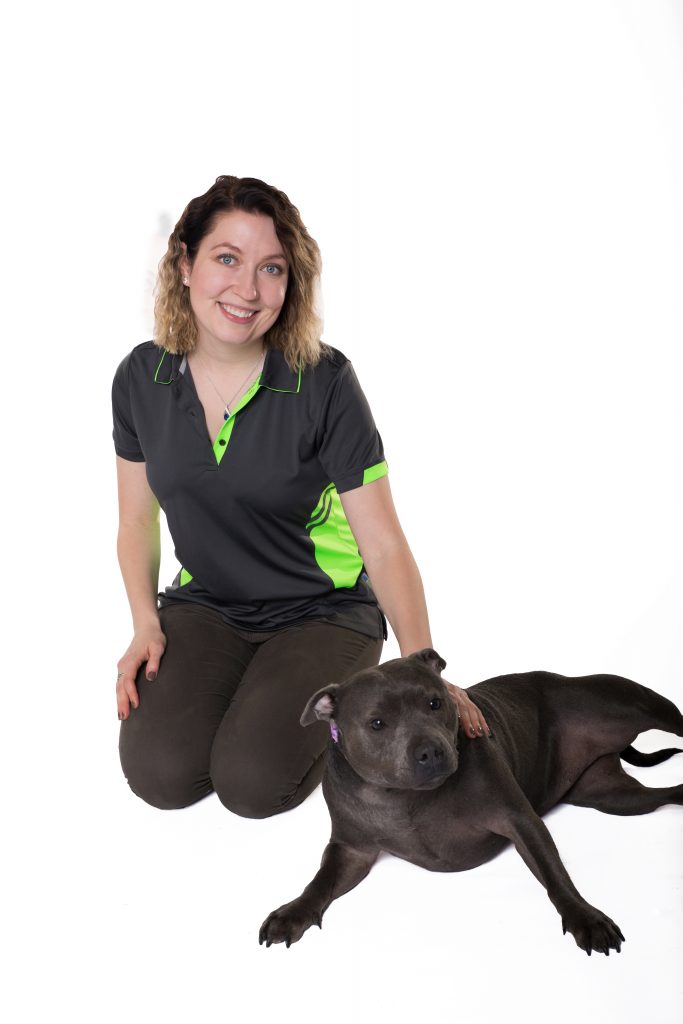The Importance Of Teaching Your Dog Social Skills

Anniina trains puppies in Annandale puppy preschool on Sunday mornings at 10.00am.
Are dogs losing their social skills?
This is something I have been thinking through out the years I’ve worked in dog daycares. My experience with dog parks and daycares is that they are places where the owners of the over-excited or antisocial dogs take their dogs. They seem to think that hanging out with other dogs will teach manners and social skills. When in fact, it’s usually the opposite.
As an experienced dog trainer I’ve done many behaviour assessments on daycare dogs.
The lack of socialisation as a young puppy can be easily noticed. Same as over-excitement and lack of basic manners. Even dogs need to learn how to socialise to avoid conflicts with other dogs. But this need to be done by raising them right. It’s not done by throwing them in a playground with other dogs and hoping for the best.
Here are some common reasons why I think dogs are losing their social skills.
- Isolation as a young puppy
- Confinement in to a small yard, area at home
- Lack of regular interaction with friendly, well behaved dogs
- Ignorance of social communication skills due over-excitement, learnt bad habits etc.
- Expectations that all dogs must get along with each other (this is clearly an issues caused by us, owners!)
When you decide to take on a puppy, you also accept the responsibility of raising them.
A puppy needs a good learning foundation to become a confident adult. That’s why training a puppy is more than just teaching basic manners. The most important aspect of the learning process is socialisation. This means introducing puppies to environments and situations they are likely to experience during their lives. Socialisation with different objects, people, dogs, other animals, surroundings, noises etc. is very important for the future of a puppy.
Puppies learn all the time, not just when they are being trained
Puppies need gentle guidance into making good decisions. They need to be allowed to investigate their environments and given positive reinforcement for the good behaviour. They also need to be redirected from unwanted behaviour. All puppies need boundaries. However, they must be given in a humane way. A puppy that experiences fear or rough handling as growing up is more likely to become reactive and aggressive later in life.
The effort spent giving your puppy a good learning foundation will pay off throughout their life. Puppies are certainly cute, but raising one can be very challenging. Seeing a pup develop into a confident adult, however, is worth all the hard work.
When it comes to training, the early weeks and months of your puppy’s life are essential.
The most critical time for your puppy’s learning is between 8-12 weeks.
This is the time period they are most open to new things. This is also the time they need to experience many different positive encounters. Dogs learn vital socialisation and communication skills when they are young. Therefore early life experiences influence how your puppy will play, communicate and learn as they develop into an adult dog.
To ensure your dog’s proper socialisation, it’s a good idea to join Annandale puppy preschool.



Hi Aniina, we have a nine month golden retriever cross who want to bring to your Obedience training. We also…
Good afternoon, How old does your dog have to be to commence at the beginners agility dog class. 12month?? Thank…
Hi, I have a 3 year old cocker spaniel who is quite reactive. She reacts to bikes, bicycles, children, and…
Hi Can I bring my Daughter along to the Puppy class? thanks
Hi Anniina. What if one of the Saturdays is raining? Is the class pushed out to the next week or…